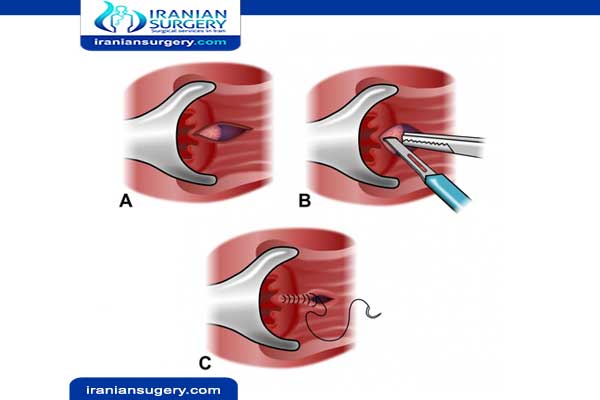Anal fissure surgery Risks and side effects

How long does pain last after fissure surgery?
Side effects and potential risks of an Anal fissure surgery
In the majority of cases, an anal fissure surgery is successful and patients are satisfied. However, as with any type of surgery, there are certain risks. Some of the risks and side effects of an anal fissure surgery include:
. Temporary incontinence: Some patients have incontinence in the period immediately following surgery. This can include the leakage of stool or difficulty in controlling gas. However, in most cases, this only occurs in the first week or two after the surgery. It is rare to experience fecal incontinence after the healing period.
. Hemorrhage. Hemorrhaging, or bleeding, can happen after a surgical procedure, but it is a rare complication. In the case that there is unexpected bleeding, some sutures (stitches) may need to be used to stop the bleeding.
. Perianal abscess. It is rare, but in some cases where the closed technique is used, an abscess (a collection of pus) can develop, along with an anal fistula. If this does happen, the abscess may need to be drained and another procedure to remove the fistula, called a fistulotomy, may need to be done.
Read more about : Stages of fissure healing
Read more about : Anal fissure recovery
Read more about : Anal fissure surgery Risks and side effects
Read more about : What size of ovarian cyst is dangerous?
About Iranian Surgery
Iranian surgery is an online medical tourism platform where you can find the best Surgeons to treat your anal fissure in Iran. The price of treating an anal fissure in Iran can vary according to each individual’s case and will be determined by the type of anal fissure treatment you undergo and an in-person assessment with the doctor. So if you are looking for the cost of anal fissure treatment in Iran, you can contact us and get free consultation from Iranian surgery.
Complications
Complications of anal fissure can include:
. Failure to heal. An anal fissure that fails to heal within eight weeks is considered chronic and may need further treatment.
. Recurrence. Once you've experienced an anal fissure, you are prone to having another one.
. Pain and discomfort
. Clotting
. Uncontrolled bowel movements and gas
. A tear that extends to surrounding muscles. An anal fissure may extend into the ring of muscle that holds your anus closed (internal anal sphincter), making it more difficult for your anal fissure to heal. An unhealed fissure can trigger a cycle of discomfort that may require medications or surgery to reduce the pain and to repair or remove the fissure.
Read more about : Virgin tightening surgery before and after
Read more about : Early sings of Anal cancer
Read more about : Anal fissure surgery
Read more about : What should not eat in fissure?
Risk factors
Certain factors raise the risk for anal fissures, including:
. Constipation. Straining during bowel movements and passing hard stools increase the risk of tearing.
. Eating a low-fiber diet
. Intense diarrhea
. Recent weight loss surgery, because it leads to frequent diarrhea
. Childbirth. Anal fissures are more common in women after they give birth.
. Minor trauma, especially trauma caused by high-level mountain biking
. Crohn's disease. This inflammatory bowel disease causes chronic inflammation of the intestinal tract, which may make the lining of the anal canal more vulnerable to tearing.
. Anal fissures may also result from inflammatory bowel disease, surgery, or other medical treatments that affect bowel movements or the anus.
. Anal intercourse.
. Anal fissures can occur at any age, but are more common in infants and middle-aged adults.
Read more about : Precautions after fissure surgery
Read more about : Type of Infertility Treatment in Iran
Read more about : Egg donation in iran
Read more about 2nd iui success rate
Read more about Virgin tightening surgery before and after
Read more about Ovarian cyst size chart
Read more about Cancer treatment in Iran
Read more about side effects of having only one testicle
Read more about rectal bleeding
Read more about Laser Eye Surgery in Iran

